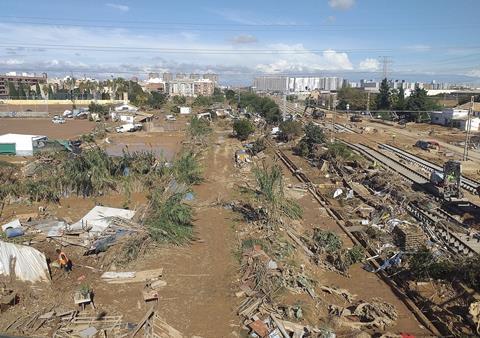Early clementines and Clemenules have reportedly sustained the most damage

As the flood waters recede in areas affected by last week’s devastating Dana storm in Valencia, growers are beginning to evaluate the impact it will have on the citrus campaign.
Nacho Juárez, citrus manager at Anecoop, said the damage was mainly limited to early clementine varieties and Clemenules. La Hoya de Buñol, la Ribera Alta, la Ribera Baja or L´Horta Sud are the worst affected areas.
“It is still difficult to measure the possible consequences, but we do not expect what you could call a very significant impact on the overall citrus season,” Juárez told Fruitnet.
“A few hundred hectares have suffered significant damage from hail. Most fruit has not had very long periods in contact with water; however, where the water has stagnated due to lack of drainage, there may be major problems. But in the field we think this will be a low percentage of the total surface area.”
Juarez noted that some batches of early clementines that were at a relatively advanced level of maturity were affected by waterlogging and suffered skin damage due to excess humidity.
“Today we will go out to harvest clementines in more areas and we will be able to see the quality of the samples. We are mainly concerned about Clemenules, although we do not expect a huge impact because it is still just beginning to mature,” he said.
He added that later varieties had been barely affected. “Only in the Clemenvilla/Nova category have we seen some water damage like in clementines,” he said.
Juárez said that oranges had largely escaped damage.
Last week, agricultural union Ava-Asaja warned that in the worst affected areas, some farms will have sustained damage to 100 per cent of their harvest. Infrastructure like packing sheds, outbuildings and irrigation systems have also been damaged or lost.
In the longer term, there are fears that trees that have sustained long periods under water may not survive, and there could be a higher incidence of disease.
Speaking to 20 Minutos, Carles Peris, general secretary of La Unió Llauradora i Ramadera, said it remained to be seen how the market would react. He said the sector was hopeful that production from other areas could make up for any shortfall.
“It is too early to determine the impact on supermarket supplies or on prices. Today, with so many producing areas and such a globalised world, the impact is often not so noticeable,” he said.



